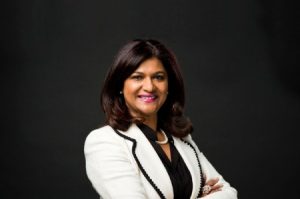Many South Africans don’t have a hold on their personal finances and not knowing how to manage your own finances, means not doing anything to take control of your private financial matters. Part of not managing your personal finances also means a lack of planning on your part, which in turn impacts your mental wellbeing, causes further anxiety about the future and adds to the already alarming stresses the pandemic brought on.

In an article called Closing the financial literacy gap in South Africa, by Farzana Botha, which was published on iol.co.za on 18 August 2021, she writes “Poor financial literacy continues to hamper South Africans’ ability to save. The Human Sciences Research Council’s 2017 report states 48% of South Africans don’t manage to save at all, with 42% reporting no long-term savings of any kind.”
Botha also warns that people should educate themselves by writing, “A further alarming finding is that of the Organisation for Economic Co-operation and Development, which ranked South Africa the worst of 30 countries for financial competency in 2018. The South African Financial Sector Conduct Authority found few adults could answer an arithmetically based question on inflation correctly. Just a third could perform a simple compounding calculation. These worrying realities need to be addressed urgently and head-on.”
7 Steps to Start Managing your Personal Finances:
- Evaluate what financial state you are in. Take a good look at all your finances. Begin by writing everything down like your income, expenses (make note of the essential expenses and unnecessary expenses), life insurance, other insurance etc. Writing everything down makes you realise what your money is doing and how it is distributed. It helps you see what you get in and what you waste your money on.
- Set proper financial goals. Make sure you make your money work for you. Decide how much you want to save each month and stick to it. But to save and spend money on the necessities is not enough, you also have to plan and set financial goals for when you can’t work or are too old to work. “Financial planning and discipline is key to one’s financial freedom” says Kishorkumar Balpalli.
- Keep monthly budgets but keep track daily. This way you will be able to keep track of your expenses and any increases in tariffs or inflation. Don’t forget to note your daily expenses. Manoj Arora, Author of From the Rat Race to Financial Freedom says, “When you know the impact of little expenses, you will realise that there is nothing little in this world.” A small amount here and there adds up, and if you are not aware of it, you are not consciously mindful to stop and think about the costs which might be very unnecessary.
- Assess your expenses. Ask yourself, “Do I really need it?” or “Can this wait?” or “Is this a necessity?” Once you sit down with yourself and assess all your expenses you will be amazed at how much money you are wasting on a monthly basis. This is not to say you should not enjoy your hard-earned money or save for something nice. A holiday occasionally, or a new outfit every now and again, should be seen as rewarding yourself for saving throughout the year. But note the word “occasionally”.
- Pay your debt ASAP. “Every time you borrow money, you’re robbing your future self” says Nathan W. Morris. Make a list of all the monies you owe and then formulate a plan to pay off your debt as soon as possible. Then you start living debt-free. This will release you from financial burdens and give you peace of mind for the future.
- Shop around and compare. Don’t always go for the quick and easy route. Shop around. Get more than one quote. Talk to people to get some advice before making commitments or buying something expensive. Evaluate various offers on the table and do your research. Some effort might save you a lot of money. But then again, also remember that cheap doesn’t necessarily mean quality and vice versa.
- Have an emergency fund. Benjamin Disraeli says, “I am prepared for the worst, but hope for the best.” Knowing you have a buffer, a safety net, if something goes wrong or if you need cash for an emergency, aids you with handling your stress better.
“Financial fitness is not a pipe dream or a state of mind, it’s a reality if you are willing to pursue it and embrace it.” Will Robinson.
By keeping on top of our personal finance management we can avoid falling into the easy debt trap that is so rampant in our society and causes huge stress amongst our workforces. Personal finance teaches us about money and money is the ability to make choices and gain power. Learning about personal finance will give us freedom in our life and the ability to accomplish our dreams.
The more you know about your personal finances and how to manage it, the better your mental health will be and the more financially secure your future self will be. Benjamin Franklin said: “An investment in knowledge pays the best interest.”


